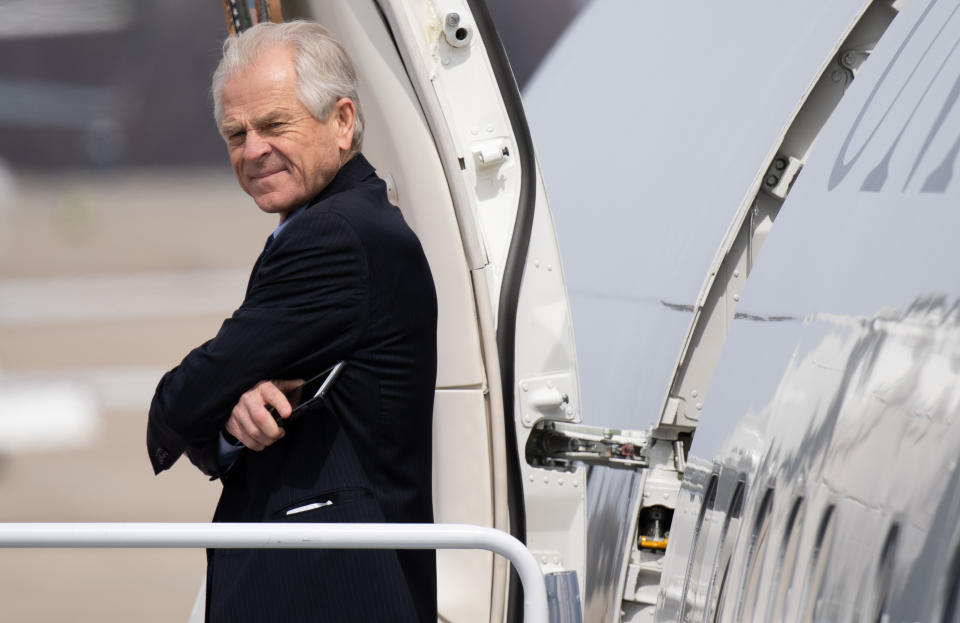US and China need to go back to the original trade deal: Peter Navarro
The market jumped on the news that the U.S. and China agreed to go back to the negotiating table in October. Peter Navarro, President Donald Trump’s top advisor and trade negotiator, says the U.S. won’t back down from its demands in the previously failed deal, suggesting roadblocks remain for the two countries to make a pact.
In an exclusive interview with The Final Round on Yahoo Finance, Navarro made clear the U.S.’s expectations for the latest round of trade talks.
“We had a deal. We had a 150 page plus agreement that was in these seven verticals that dealt with each of these issues plus enforcement. It was negotiated over 11 negotiating sessions and including commas and paragraphs. And that's the basis for moving forward,” Navarro said on Friday, referring to the tentative trade deal in May. “But the Chinese walked away from that. And in many ways, this deal will be determined by what the Chinese want to do.”

It’s unclear how China will leave room to renegotiate a trade deal that it dropped three months ago. Trump has accused China of reneging on its promises last minute. But China denied doing so, saying “nothing is agreed until everything is agreed on.” The Chinese side sees it as a prerequisite for a trade deal that the U.S. remove all additional tariffs imposed on Chinese exports. It also doesn’t want to make changes to its law under the pressure of a foreign power, asking the U.S. to respect its sovereignty and dignity.
Since the fallout of a much-anticipated deal in May, the tension between Washington and Beijing has escalated sharply. Trump has doubled down on his tariffs, expanding additional tariffs on all imported goods from China. The Chinese side hit back with their own tariffs on part of U.S. products, which is seen as “measured responses” by experts.
Like Trump, Navarro said the Chinese are paying “the full burden” of these tariffs because Chinese exporters have lowered the price and China’s currency has devalued by 15%. Despite the ease brought by yuan’s devaluation, hundreds of American companies wrote to the president, urging him to cancel proposed higher tariffs on Chinese imports, which will bring higher costs and price increases.
‘The seven deadly sins’
Navarro, one of Washington's most prominent China hawks, listed what he called “the seven deadly sins” of China, including cyberattacks, forced technology transfer, intellectual property theft, product dumping, subsidized state-owned enterprises, currency manipulation and selling fentanyl to the U.S.
“We need to go back to that original deal, those seven verticals, dealing completely with all of those structural issues,” Navarro said. “In the two and a half years the president's been in office, he has changed this country's understanding of the China problem. And right now he has very strong bipartisan support and public support for standing up to China.”
Krystal Hu covers technology and China for Yahoo Finance. Follow her on Twitter.
Read more:

